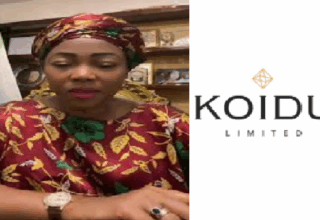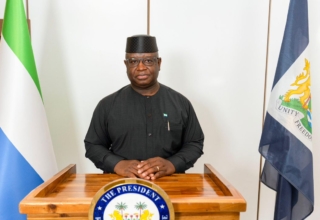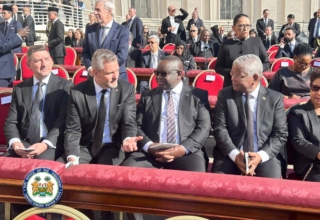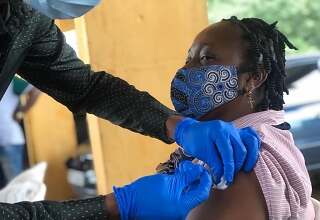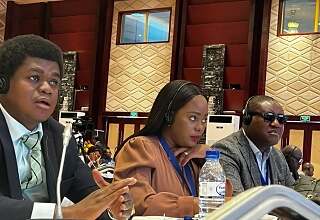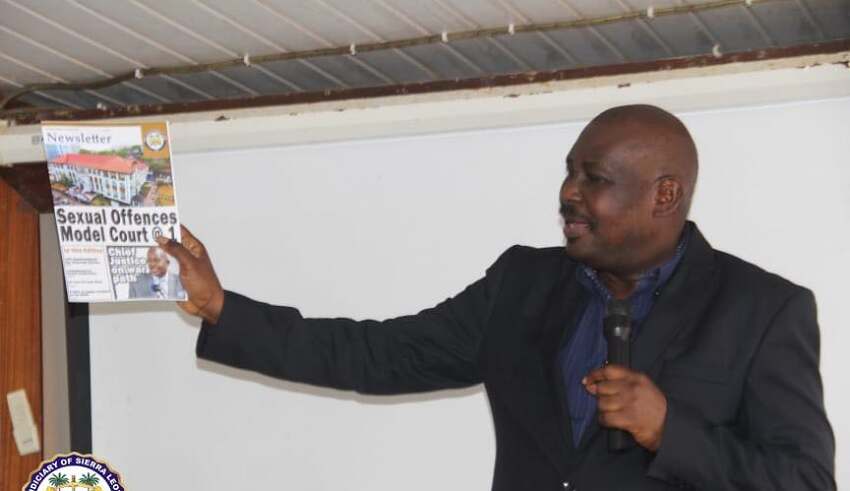
By Jane B. Mansaray.
The declaration of rape as an emergency by President Dr. Julius Maada Bio in 2019 resulted in the amendment of the Sexual Offences Act. Since then, many new and progressive developments have taken place; including drafting of the Sentencing Guidelines by the Judiciary in addition to the recruitment and deployment of new Magistrates and Judges.
Despite this, access to Justice for victims and survivors of sexual violence remains a big challenge in the country, with gaps along the justice chain allowing these violations to continue, some of the challenges noted include; the misapplication of the provisions of the law by law enforcement agents including Judges and Prosecutors in addition to difficulties related to trial proceedings.
It is with this background that, the Judiciary of Sierra Leone in collaboration with Defence for Children International with support from Equality Now, embarked on a two-day management training of trial of sexual offence cases.
The training brought together over 16 Judges and Magistrates from different jurisdictions in Sierra Leone for a two-day training to update and refresh their knowledge and skills on the application of laws, given the critical role they play in ending sexual violence by presiding over and making decisions that touch on these cases.
While opening the training the Chief Justice, Desmond Babatunde Edwards said it is great pleasure to opening yet another training for Judges in the judiciary, noting that it shows the Judiciary is making headway when it comes to professionalism.
He said they have also organized couple of trainings, noting that those trainings will serve as a positive impact for the judiciary.
Justice Edwards said when he came to the helm as Chief Justice the conviction rate was below 5% adding that as of now they have been tremendous progress with a conviction of 34%. He said even though such progress has been made, but said there is room for improvement. He ended up applauding the support of Equality Now, whom he said has been one of their reliable partners.
In his statement, the Executive Director of Defence for Children International, Abdul Manaff Kemokai said together with Equality Now they have been working on a project to improve access to justice of victims or survivors.
He said the aforesaid reason has been the goal of the project, noting that as organization they are mostly looking into gender sensitivity cases in trying to protect the interest of the child.
He said even though the decisions of the judges are based on the law, they will continue to canvass them to look into the sensitivity of the issues, particular the one that has to do with children.
He thanked the judges and judiciary as a whole for their cooperation, noting that the project itself is being sponsor by Relief.
Making her statement through the aid of technology, the Director of Equality Now, Faiza Mohamed said Equality Now is an international organization with its Africa office based in Nairobi. She said their aim is to achieve legal and systemic change to address violence against women and girls. Among such violence she said is rape, and cultural assumptions. As an organization, she said they are calling out inequality whenever they see it.
The two-day workshop organized through the Judiciary and Legal Training Institute (JLTI) ends today 6th August 2021, after it was formally opened yesterday, 5th August 2021, by the Chief Justice Desmond Babatunde Edwards at the Barmoi Hotel on Aberdeen in Freetown.
The training, according to the CJ, will not only help the Judges and Magistrates in updating their knowledge, but will also result in the identification of action points that will help us realize a country Sierra Leone, that will be free from sexual violence; where girls are protected and perpetrators accordingly punished for their crimes.
As children and women’s rights organizations, Defence for Children International, Equality Now and WAVES believe that the trials of sexual offences can best be done if those involved in decision making have sufficient knowledge in not only the substance of the laws and procedures involved in adjudication, but also the application of gender sensitivity .
In the adjudication of justice, the principle of best interest of the child, non-discrimination and non-stigmatization of victims and survivors should stand prominent.

